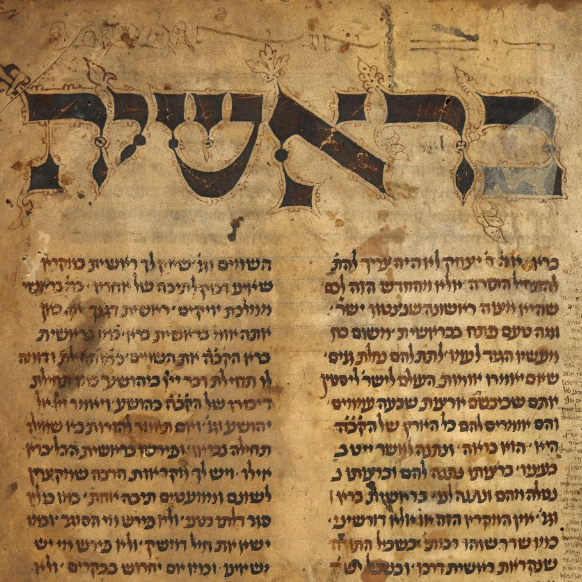
Commentaries have the potential to repress and to transgress, sometimes limiting the scope of interpretation, other times expanding the scope of what can be imagined. By reformulating canonical texts and revisioning traditional interpretations, commentaries generate new knowledge that leads to cultural transformation. Meta-commentaries and auto-commentaries illustrate canon formation in action, as key texts are reinscribed at the heart of the interpretive tradition — whether to stabilize established knowledge or to generate new questions.
Above image: British Library. Egerton MS 872, fol. 1r. Pentateuch with the Hafṭarot, Five Scrolls, and Rashi’s commentary, 1341.Source: http://www.bl.uk/manuscripts/FullDisplay.aspx?ref=Egerton_MS_872
Background image: British Library. Egerton MS 872, fol. 199r. Pentateuch with the Hafṭarot, Five Scrolls, and Rashi’s commentary, 1341.Source: http://www.bl.uk/manuscripts/FullDisplay.aspx?ref=Egerton_MS_872